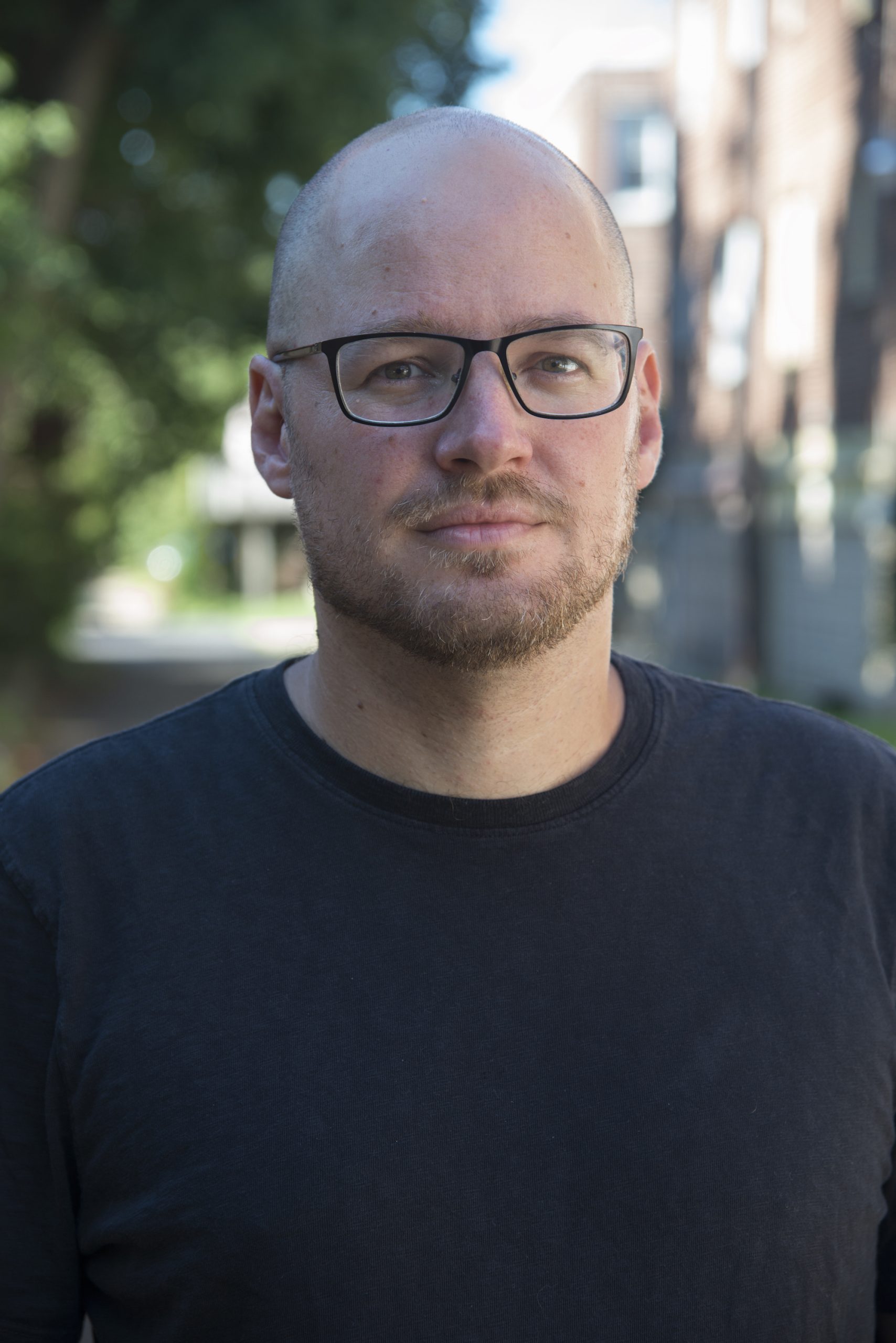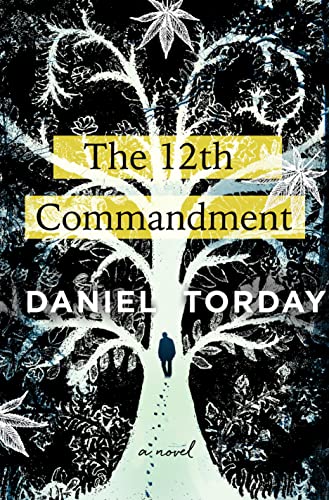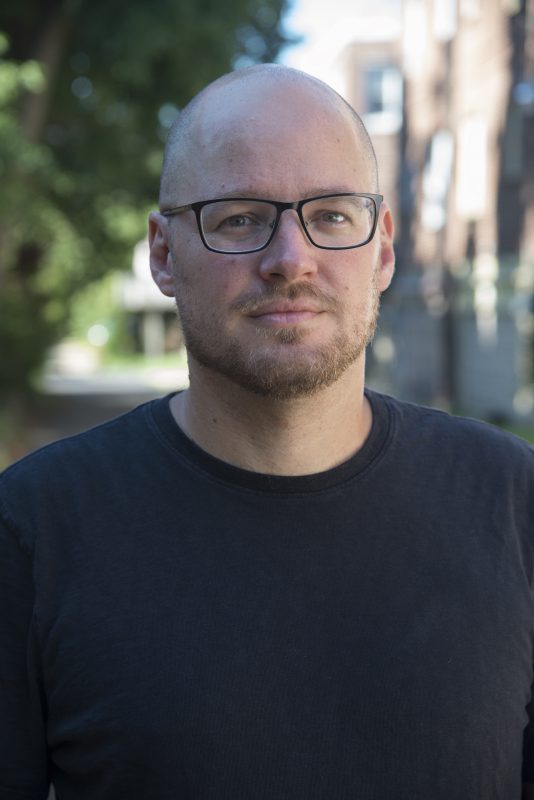

Daniel Torday
Acclaimed Story Writer & Essayist
Award-winning Novelist


Readings &
Lecture Topics
- An Evening with Daniel Torday
Biography
“Torday’s ability to shift gears between sweeping historical vistas and more intimate family dramas, and between old-school theatrics and more contemporary meditations on the nature of storytelling, announces his emergence as a writer deserving of attention.” —The New York Times
“Daniel Torday is a singular American writer with a big heart and a real love for the world. He has the rare gift for writing dynamic action scenes while being genuinely funny.”— George Saunders
“Refreshingly (if at times devastatingly) uncanny, funny, and clever.” —The Millions
Daniel Torday is the author of three novels The 12th Commandment (St. Martin’s Press, 2023), Boomer1 (St. Martin’s Press, 2018), and The Last Flight of Poxl West (Picador, 2015), a New York Times Book Review Editor’s Choice and an International Dublin Literary Award nominee; and the novella The Sensualist, winner of the National Jewish Book Award for Outstanding Debut Fiction.
Swirling with secrets and their consequences, exploring how revelation and redemption might be accessed through sin, and driven through twists and turns toward a startling conclusion, Torday’s most recent, The 12th Commandment, is a brilliant new work. Entertainment Weekly describes Boomer1 as “A “sharp, funny take on the divide between baby boomers and millennials.” Author Phil Klay calls it “A wild, wickedly funny, and deeply empathetic look at modern American culture and politics. Sometimes he’s writing cutting satire, sometimes he’s writing Greek tragedy, and sometimes he’s just writing passages of staggering beauty, but he’s always a brilliantly compelling and necessary voice in these strange, troubling times.” In a cover review The Last Flight of Poxl West, The New York Times Book Review called the book, “Expertly crafted…full of lyrical prose, superb Rothian sentences that glide over the page as smoothly as a Spitfire across a cloudless sky.” NPR describes it as a “WWII novel-memoir” which shows us “how memoir and fiction can blur—and how hard it can be to convey truth.”
Torday’s fiction, essays, and criticism have appeared in The New York Times, NPR, The Paris Review Daily, Esquire, and Tin House. His work has been included in both the Best American Short Stories and Best American Essays series.
A two-time National Jewish Book Awardee and winner the 2017 Sami Rohr Choice Prize, he is Director of Creative Writing at Bryn Mawr College.
Short Bio
Daniel Torday is the author of three novels The Last Flight of Poxl West, a New York Times Book Review Editor’s Choice and an International Dublin Literary Award nominee; Boomer1, The 12th Commandment. Torday’s work has appeared in The New York Times, NPR, The Paris Review Daily and Tin House, and has been honored in both the Best American Short Stories and Best American Essays series. A two-time National Jewish Book Awardee and winner the 2017 Sami Rohr Choice Prize, he is Director of Creative Writing at Bryn Mawr College.
Publications
The 12th Commandment
Novel, 2023
The Dönme sect—a group of Jewish-Islamic adherents with ancient roots—lives in an isolated community on rural land outside of smalltown Mt. Izmir, Ohio. Self-sustaining, deeply-religious, and heavily-armed, they have followed their self-proclaimed prophet, Natan of Flatbush, from Brooklyn to this new land. But the brutal murder of Natan’s teenage son throws their tight community into turmoil. When Zeke Leger, a thirty-year-old writer at a national magazine, arrives from New York for the funeral of a friend, he becomes intrigued by the case, and begins to report on the murder. His college girlfriend Johanna Franklin prosecuted the case, and believes it is closed. Before he knows it, Zeke becomes entangled in the conflict between the Dönme, suspicious local citizens, Johanna, and the law—with dangerous implications for his body and his soul.
Boomer1
Novel, 2018
Bluegrass musician, former journalist and editor, and now PhD in English, Mark Brumfeld has arrived at his thirties with significant debt and no steady prospects. His girlfriend Cassie―a punk bassist in an all-female band, who fled her Midwestern childhood for a new identity―finds work at a “new media” company. When Cassie refuses his marriage proposal, Mark leaves New York and returns to the basement of his childhood home in the Baltimore suburbs. Desperate and humiliated, Mark begins to post a series of online video monologues that critique Baby Boomers and their powerful hold on the job market. But as his videos go viral, and while Cassie starts to build her career, Mark loses control of what he began―with consequences that ensnare them in a matter of national security. Told through the perspectives of Mark, Cassie, and Mark’s mother, Julia, a child of the ’60s whose life is more conventional than she ever imagined, Boomer1 is timely, suspenseful, and in every line alert to the siren song of endless opportunity that beckons and beguiles all of us.
The Last Flight of Poxl West
Novel, 2015
Poxl West fled the Nazis’ onslaught in Czechoslovakia. He escaped their clutches again in Holland. He pulled Londoners from the Blitz’s rubble. He wooed intoxicating, unconventional beauties. He rained fire on Germany from his RAF bomber. Poxl West is the epitome of manhood and something of an idol to his teenage nephew, Eli Goldstein, who reveres him as a brave, singular, Jewish war hero. Poxl fills Eli’s head with electric accounts of his derring-do, adventures, and romances, as he collects the best episodes from his storied life into a memoir. He publishes that memoir, Skylock, to great acclaim, and its success takes him on the road, and out of Eli’s life. With his uncle gone, Eli throws himself into reading his opus and becomes fixated on all things Poxl. But as he delves deeper into Poxl’s history, Eli begins to see that the life of the fearless superman he’s adored has been much darker than Poxl let on, and filled with unimaginable loss from which he may have not recovered. As the truth about Poxl emerges, it forces Eli to face irreconcilable facts about the war he’s romanticized and the vision of the man he’s held so dear. Daniel Torday’s debut novel, The Last Flight of Poxl West beautifully weaves together the two unforgettable voices of Eli Goldstein and Poxl West, exploring what it really means to be a hero, and to be a family, in the long shadow of war.
The Sensualist
Novella, 2012
Fiction. Jewish Studies. Winner of the 2012 National Jewish Book Award for Outstanding Debut Fiction. Raised in Baltimore in the ’90s, 17-year-old Samuel Gerson is ready to be rid of his high school baseball team, his protective upbringing, and the tight-knit Jewish community in which he’s spent his whole life. But when he befriends enigmatic Dmitri Zilber, a recent Russian Jewish immigrant who is obsessed with the works of Dostoevsky, Samuel’s world begins to shift. In the wake of his grandfather’s suicide, as his life increasingly entangles with that of Dmitri and his beautiful sister Yelizaveta, it sets in motion a series of events that culminates in a disturbing act of violence. A quietly devastating portrait of late adolescence, The Sensualist examines the culture we inherit as it collides with the one we create.
Articles & Audio
Read What’s In Print
• The Space Between Notes: What Writers Can Learn From Musicians – LitHub
• Boomer1 is yet another stunner by Mt. Airy novelist – Chestnut Hill Local
• The Complication of the Jewish Writer Question – Jewish Book Council
Selected Writings
BOOMER1 (an excerpt)
CLAIRE STANKOWITCZ CHANGED HER NAME to Cassie Black at the beginning of her first year of college. It was the best decision she’d ever made. The most decisive she’d ever been, too. It wasn’t that she didn’t love her mom and dad—they’d been models of parental exceptionalism since she was a kid, allowing her all the freedoms a child, a teenager, could hope for. But upon her arrival at the Wellesley campus after a two-hour flight from central Ohio, what Cassie needed was a clear-cut, empirically observable change. Her parents didn’t object. They got a hotel room in Back Bay, a couple blocks from Comm Ave., and the Wednesday before the first day of classes her freshman year they dropped her off at a Boston courthouse, where she legally changed her name. It seemed perfect to Cassie that she would share a last name with the lead singer of the Pixies in the town where the Pixies had grown their legend two decades earlier.
By the time she was a sophomore, Cassie’s response to her new name had grown reflexive. She’d picked up the bass and joined a punk band—well, a post-punk band. Though she’d played violin in school bands since she was six, and though some part of her musical mind would always love playing bluegrass and old-time fiddle, holding a big black Epiphone bass down somewhere below her waist, thumping it with a .50mm black pick while glaring into the middle distance behind the crowd, was the look and the sound she wanted now. By the time she was a senior, the U.S. had been in Afghanistan for three years, and her bandmates made a plan to move to Greenpoint, Brooklyn. A group of alums from the class of 2002 had rented a two-story row house on Eagle Street, and rooms were renting there for six hundred dollars a month, about half of what Cassie had heard it might cost to live in Brooklyn. They’d named themselves the Pollys (their lead singer Natalia’s early desire to have them be called either the Rape Me’s or the Box-Shaped Hearts was slammed shut the moment she spoke them into her P-58) and within their first month in the city they had a gig at a house party in Williamsburg. It wasn’t the Williamsburg they’d pictured—every block closer to the Bedford L was more perfectly renovated, chrome-and-glass façades and Mercedes GLK SUVs double-parked outside of Planet Thailand—but their part of the mega-neighborhood Greenpoint and Williamsburg and Bushwick combined to make was ugly enough in winter, devoid of trees, children, and available parking. Cassie watched old Polish women in their babushkas push their black wire carts home from the Pathmark and felt she’d arrived.
That first gig was on the eleventh floor of an iconic building on Kent Ave. The place was pre-cancerous with artists’ lofts. It was owned by a group of Hasids who rented the basement to a matzoh company that baked the cracker tar-black to be sold for Seders around the city. A couple years after the Pollys’ first gig the building would catch fire from those Orthodox bakers and burn, only to be rebuilt to spec within a year. Now it was still standing. Cassie and her bandmates plugged in at the back of a wide-open loft, 1,200 square feet of mostly unfurnished urban mixed-use space, at its back a wall made of windows. Out across the bottom of the East River stood the buildings of the financial district like some static play being eternally staged. Maybe fifty bespectacled recent college grads milled around drinking Pabst Blue Ribbon from the can and Miller High Life from the bottle.
The Pollys played their set loud, closed with their blazing-fast punk version of Ralph Stanley’s “Pretty Polly”—if Kurt Cobain could cover Lead Belly, they could cover the Clinch Mountain Boys—and then a traditional bluegrass band set up to play next. How would anyone even hear them with the instant tinnitus in their ears? Cassie wondered. By the time the second band got their radio mic set up and huddled around it, bass far to the back and guitar, mandolin, banjo, and fiddle crouched near the mic, her ears had stopped ringing. The band was good. Unlike the banjo-fronted Ralph Stanley setup, now the mandolin player functioned as the lead instrument—he picked out sloppy lines, but he sang high and hard like a girl, and Cassie found herself paying more attention than she’d expected. There was a certain poetry to the fact that they did their own version of “Pretty Polly” themselves, a wink right back at the Pollys, making the old sound new sound old. After the gig ended the mandolin player came over to her while she was packing up her bass.
“You guys slayed tonight,” he said. He was probably five or six years older than she was. Cassie could see where his hair was thinning around his widow’s peak, light trickling its way through to his white scalp, though what hair he had still was longish. He was wearing a kelly green T-shirt that said GETTIN’ LUCKY IN KENTUCKY. Part of Cassie couldn’t help but wonder if he was making fun of her own home in the Midwest wearing it. “Probably should’ve opened for you instead of the other way around. I doubt anyone could even hear us after your amps.”
“They’re not our amps,” Cassie said. Then she went over to find the rest of the Pollys. She’d been sleeping with Natalia for a month now, and the last thing that relationship needed—that the band needed—was for their lead singer to think she was flirting with a bluegrass-mandolin-playing, ironic-thrift-shop-T-shirted twenty-something-year-old boy.
The best thing that came of that first Williamsburg gig was that the younger sister of the guy who booked shows for CBGB was there. She e-mailed Natalia, who did all the booking for the band, to tell her that she thought her brother would like them. Did they have a CD? They didn’t, but they’d made a MySpace page where you could stream two tracks they’d recorded on Cassie’s iMac back at Wellesley. Natalia sent a link. Before they knew it, they had a gig in Manhattan. It was three months away, but it was a gig. It didn’t make Cassie’s day job feel a whole lot better. Really it was a night job, working as a cocktail waitress at the bar in the basement of the Chelsea Hotel. She only had to work three nights a week and she made more than enough to pay rent—bottle service meant sometimes a group of Russian oligarchs’ kids might drop two grand in a night, three even, might leave a half-full bottle on the table on their way to Scores. The tip, if they were drunk enough on Grey Goose shots, could be two, three hundred bucks. It was exhausting work. It took Cassie a day to sleep off the nights. That left her the equivalent of a long weekend every week to rehearse, read, just walk around Manhattan and Brooklyn.
The night of their CBGB show Cassie was nervous, but not as nervous as she suspected. This was CBGB! Television had played here, Talking Heads and Big Star and Patti Smith. It was like she was walking between the silent ghosts of still-living Alex Chilton and David Byrne as she made her way to the space backstage. Sure, there was an ATM up front now, and next door they’d opened CB’s Gallery, where keening acoustic guitarists could sit on stools and whisper-sing Elliott Smith covers into a mic like they’d been booked at the Living Room. But this was at least a version of living out her dreams. There were four bands on that night. The Pollys were second. They stood in front of the stage and watched as a six-foot-eight bundle of gangly limbs flailed around and screamed into the mic like he was the embodied ghost of Ian Curtis. They were just about to head backstage when someone pushed her shoulder.
“You’re gonna kill tonight,” the guy said. She knew him but it took her a second to place how. Her brain just began to formulate an image of a mandolin before her when he said, “Mandolinist. From the Willow Gardens.” Cassie did remember him, but she continued just to kind of scowl at him. “The bluegrass band from that Billyburg loft party this summer.”
“Right,” Cassie said. She gave a look around her—she was still with Natalia, though outside of band practice they hadn’t seen each other much the past month, and she didn’t want this to look bad. But the rest of the band had already headed backstage. “Right, the Willow Gardens. Terrible fucking name.”
“That’s the hardest thing,” he said. “Coming up with a good name. My name’s Mark, by the way. Which would also be a terrible band name: The Mark.”
“The Mark By the Way would be worse,” Cassie said.
“Yeah. Sucks trying to come up with a band name. We had friends who performed for a year as Hard Raisin’ before they realized it sounded like they were named after a hard raisin.” She didn’t say anything. “Yours is damn good, though. Name. Your band name. That was always one of my favorite Nirvana songs.”
Cassie was surprised to learn that this bluegrasser even knew about Kurt Cobain, but she supposed being a bit older, they must have been big when he was in high school. She couldn’t keep eye contact, so she looked down to where she could see he was clasping his hands together. They were very nice hands. She could see where they had a light covering of blond hairs. They looked soft, but she could see as his left hand worked its fingertips over his right that they were calloused from fretting his mandolin. Cassie had always been attracted to hands. She looked up. She asked Mark what he was doing here.
“The Willow Gardens are playing next door at CB’s Gallery in like an hour.”
“Oh, right, next door,” Cassie said. “Of course.”
“You know the ‘BG’ in CBGB does mean ‘bluegrass,’” Mark said. “It’s not that weird we’re playing here.” Cassie figured he must have noted the sour look on her face, which come to think of it she wasn’t doing much to hide.
“Anyway,” he said. “Saw your guys’ name up on the ad in The Village Voice and thought I’d drop by to say hi. So. Hi.” He turned to leave. For a second she felt bad for having given him a hard time about the band name. She hadn’t slept with a man in a couple years, more, so maybe Natalia wouldn’t assume anything even if she saw them.
“You know, I used to play fiddle,” she said. All at once she could see something brand new in this guy’s face, a dimple that appeared in the lower right corner of his mouth and a tautness that developed at the corners of his eyes—he started to ask all kinds of questions about where she was from, what brought her here, telling her that fiddlers could make good money in bluegrass bands in the city playing weddings and brunches, and it was feeling comfortable, less like he was trying to pick her up than that he was trying to be her friend, when she saw Natalia was standing next to the stage watching them talk.
“Shit,” Cassie said. “Shit shit fuck. Shit.” She walked away without saying good-bye.
The Pollys played their gig and they were good, the best they’d ever been, but they were second billing at CBGB, so maybe forty people were there, bobbing heads a bit in the beer-rimed room. Even Mark turned tail and headed out before they finished, whether because he needed to get next door for his show or because he’d grown bored of the music, she couldn’t tell. They didn’t get another invite to play, but more problematic, what Cassie thought was a good gig, full of energy, Natalia thought was something different.
“The fuck were you talking to before we played,” Natalia said. She was five foot four, with a thin, tight black faux-hawk and a smattering of freckles on her Cremona-colored cheeks. Cassie told her that it was the mandolin player from the band that they opened for in Williamsburg.
“The Pussy Willows?” Natalia said.
“Willow Gardens,” Cassie said. “C’mon, they were—” Before she started to defend them only a couple hours after telling their lead singer and mandolin player to his face how bad she thought the name was, she stopped herself. But she didn’t stop the inevitable. Natalia felt the show had been a debacle. She grew convinced it was Cassie’s fault. In the coming months a sense that something was off grew among the Pollys. Natalia kept stopping mid-song at band practices. Cassie was dropping the beat, she said. She stopped so many times their drummer stopped one time herself—“Someone’s dropping the beat,” she said, “and I’m not saying who it is. But. It’s not me. I don’t think the Yeah Yeah Yeahs got to where they are because someone couldn’t keep time.”
So one afternoon the day after she made almost six hundred bucks on bottle service, Cassie came to band practice to find that no one else was taking their instruments out. No mics were plugged in. They were just sitting.
“Listen,” Natalia said. “This one’s a little tough, but we met this chick after a show at Mercury Lounge. This—this bassist. From another band. But now the band’s breaking up.”
“She used to sit in with Liz Phair,” their drummer said.
“You met another fucking bassist?” Cassie said. “What does that even mean. We were in Early Modernist Poetry together freshman year. Who cares you met a bassist?”
“Liz fucking Phair,” the drummer said. “She has Kim Gordon’s cell number,” she said. “They text.”
So Cassie was out of the band she’d founded. Not only that—all at once she wasn’t sleeping with Natalia anymore. The house on Eagle Street seemed newly an impossibility. She found a room posted on Craigslist just a couple blocks away and sent an e-mail. It was a room in a house with a bunch of dudes, but Cassie wanted out yesterday. She was gone within a week. Not one member of the Pollys was home the afternoon she moved. She made twelve trips from Eagle Street a block south to her new apartment, hunched over as she lugged her books in one of those black wire carts the old Polish women used to lug groceries around the neighborhood. She passed twelve old Polish women in their babushkas on her way. Suddenly they didn’t look so much like what she wanted to be as they looked like, well, what she was becoming.
Had become.


